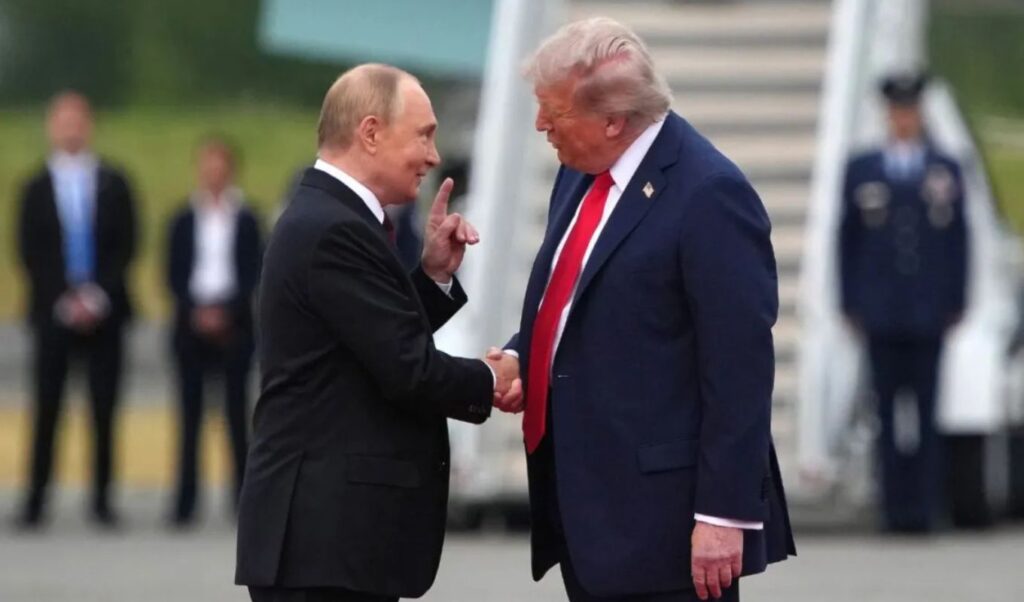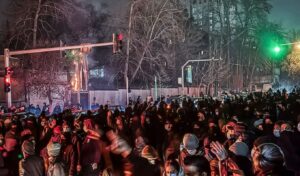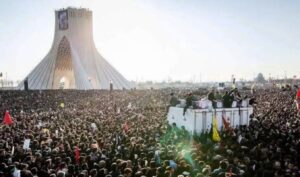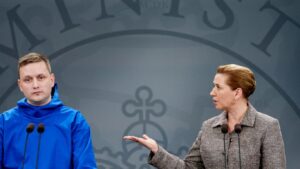Donald Trump appears to be in a very strong position in international politics, setting the pace and stirring stagnant waters with the goal of reshaping the balance of power. The Alaska summit changed the dynamics in Ukraine, leading directly to the corresponding Washington summit, with the American president “welcoming” Volodymyr Zelensky to the White House, as well as European leaders (including Ursula von der Leyen and Mark Rutte), although the “7” had no official invitation, at least formally.
Read: Government concerns over Ukraine developments that could open Turkey’s appetite for new claims
“I think we’ve had more progress in ending the war in two weeks than in the previous 3.5 years,” noted Finnish President Alexander Stubb, one of Trump’s most “favored” European leaders, with golf serving as a unifying bond. And so it seems, with processes “running” for a peace treaty (not a ceasefire), while the American president surprised everyone regarding the next steps: preparation for a bilateral meeting between Putin and Zelensky, followed by a trilateral meeting with Donald Trump’s participation.
Even here, what becomes apparent is that Europe no longer has the specific weight to sit at the table, although the leaders who accompanied Zelensky to the US, as the BBC wrote, “hastily arranged the trip to… sandwich Putin and limit his influence on Trump”: the American president, completing the expanded Washington summit (where statements were made before, not after discussions between leaders) did not include them in this. This, even though Europe is called upon to play a role in post-war Ukraine, as the “Coalition of the Willing” is expected to provide security guarantees to Kyiv (provided Russian resistance is overcome and possibly the “stature” of leaders like Emmanuel Macron and Keir Starmer, according to a European diplomat’s statement to Politico).
Trump the “mediator”
In any case, the Washington summit, which bore no resemblance to February’s “traumatic” for Volodymyr Zelensky’s prestige arm-wrestling, appears to have established specific parameters: security guarantees with concrete American presence (likely air-based) and territorial negotiations, following discussions in Alaska.
Donald Trump shows clear willingness to get things “moving,” functioning as a mediator for a mutually acceptable solution where possible, while seeking to end the “7th” or even “8th” war during his tenure, whether referring to his first or second term. His clear objective is shaping the international order, as the absolute post-Cold War American hegemony comes to an end. For months, analyses have abounded regarding the new role the American president reserves for Washington, something already reflected in symbolic terms: Donald Trump made sure to show Macron and Zelensky his collection of MAGA hats, displayed on two shelves under a crystal chandelier in the White House, indirectly reminding them of the distance separating the US from the front lines (about 7,000 km, coincidentally the same distance the Russian delegation traveled, led by Vladimir Putin, for the historic Alaska tête-à-tête). In this context, the American president both keeps his promise to voters while simultaneously bringing the Russian counterpart out of diplomatic isolation. At the center, American-Russian relations are clearly paramount for both sides.
According to a list published by Yale, over 1,000 multinationals have restricted their presence in Russia due to the war, while Washington-Moscow trade relations are at particularly low levels (a 25.8% drop in 2024 compared to 2023, reaching just $5.2 billion). There are “exceptional” opportunities for both countries, as Marco Rubio characteristically said in February, after the significant Riyadh summit attended by Sergey Lavrov, and this is certainly not coincidental: during the most recent trip by Trump’s special envoy to Moscow, Steven Witkoff, which ultimately led to the Alaska summit, there was a “walk” in Zaryadye Park, a stone’s throw from the Kremlin, together with Kirill Dmitriev.
This is the representative of the Russian presidency for investments and economic cooperation, one of the most Western-oriented advisors in Putin’s environment, as known from his own background.
The big prize
The big prize in question is the Arctic: A Foreign Policy analysis aptly notes that Moscow’s isolation (which has 53% of Arctic coastlines) leads to expanded Sino-Russian cooperation, calling American presence into question. So Alaska as a meeting point was not coincidental, nor under this perspective. However, to advance any mutually beneficial plan that could “enlarge the pie” for both countries and their business elites, there is a prerequisite: the Ukrainian issue must be resolved. And this may ultimately pass through Swiss territory (if, for example, a potential Putin-Zelensky meeting is held in Geneva, with Bern also preparing for such an event), where the managing company of Nord Stream 2 is also based, a field of interest for American investor and Trump campaign donor Stephen P. Lynch.
Published in Parapolitika




